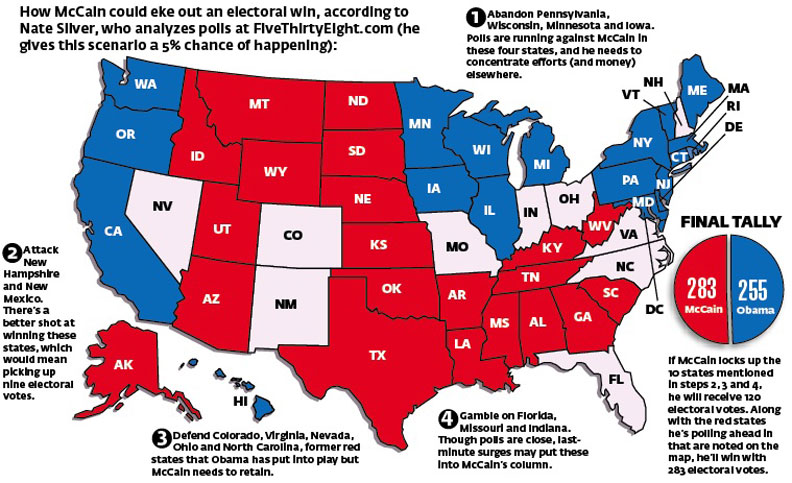For those who missed it, 60 Minutes did a nice job 3 weeks ago explaining how we got into the financial mess we're in. It's more than just "the housing bubble burst".
This 12 minute segment is well worth the watch….
What turned the collapse of the housing and mortage industry into a worldwide economic disaster was this — uh — thing created in 2000, as the result of a rather obscure piece of legislation known The Commodities Futures Modernization Act of 2000. It was an amendment tacked on to an omnibus budget. Nobody (including Democrats, or Bill Clinton, who signed it into law) complained about it.
[E]ssentially they are side bets on the performance of the U.S. mortgage markets and the solvency on some of the biggest financial institutions in the world. It's a form of legalized gambling that allows you to wager on financial outcomes without ever having to actually buy the stocks and bonds and mortgages.
***
Ask to explain what a derivative is, Partnoy [Frank Partnoy, a law professor at the University of San Diego, who has written a couple of books on the subject] says, "A derivative is a financial instrument whose value is based on something else. It's basically a side bet."
Think of it for a moment as a football game. Every week, the New York Giants take the field with hopes of getting back to the Super Bowl. If they do, they will get more money and glory for the team and its owners. They have a direct investment in the game. But the people in the stands may also have a financial stake in the ouctome, in the form of a bet with a friend or a bookie.
"We could call that a derivative. It's a side bet. We don't own the teams. But we have a bet based on the outcome. And a lot of derivatives are bets based on the outcome of games of a sort. Not football games, but games in the markets," Partnoy explains.
Partnoy says the bet was whether interest rates were going to go up or down. "And the new bet that arose over the last several years is a bet based on whether people will default on their mortgages."
And that was the bet that blew up Wall Street. The TNT was the collapse of the housing market and the failure of complicated mortgage securities that the big investment houses created and sold around the world.
But the rocket fuel was the trillions of dollars in side bets on those mortgage securities, called "credit default swaps." They were essentially private insurance contracts that paid off if the investment went bad, but you didn't have to actually own the investment to collect on the insurance.
"If I thought certain mortgage securities were gonna fail, I could go out and buy insurance on them without actually owning them?" Kroft asks Eric Dinallo, the insurance superintendent for the state of New York.
"Yeah," Dinallo says. "The irony is, though, you're not really buying insurance at that point. You're just placing the bet."
Dinallo says credit default swaps were totally unregulated and that the big banks and investment houses that sold them didn't have to set aside any money to cover their potential losses and pay off their bets.
"As the market began to seize up and as the market for the underlying obligations began to perform poorly, everybody wanted to get paid, had a right to get paid on those credit default swaps. And there was no 'there' there. There was no money behind the commitments. And people came up short. And so that's to a large extent what happened to Bear Sterns, Lehman Brothers, and the holding company of AIG," he explains.
In other words, three of the nation's largest financial institutions had made more bad bets than they could afford to pay off. Bear Stearns was sold to J.P. Morgan for pennies on the dollar, Lehman Brothers was allowed to go belly up, and AIG, considered too big to let fail, is on life support to thanks to a $123 billion investment by U.S. taxpayers.
"It's legalized gambling. It was illegal gambling. And we made it legal gambling…with absolutely no regulatory controls. Zero, as far as I can tell," Dinallo says.
Ask to explain what a derivative is, Partnoy says, "A derivative is a financial instrument whose value is based on something else. It's basically a side bet."
Think of it for a moment as a football game. Every week, the New York Giants take the field with hopes of getting back to the Super Bowl. If they do, they will get more money and glory for the team and its owners. They have a direct investment in the game. But the people in the stands may also have a financial stake in the ouctome, in the form of a bet with a friend or a bookie.
"We could call that a derivative. It's a side bet. We don't own the teams. But we have a bet based on the outcome. And a lot of derivatives are bets based on the outcome of games of a sort. Not football games, but games in the markets," Partnoy explains.
Partnoy says the bet was whether interest rates were going to go up or down. "And the new bet that arose over the last several years is a bet based on whether people will default on their mortgages."
And that was the bet that blew up Wall Street. The TNT was the collapse of the housing market and the failure of complicated mortgage securities that the big investment houses created and sold around the world.
But the rocket fuel was the trillions of dollars in side bets on those mortgage securities, called "credit default swaps." They were essentially private insurance contracts that paid off if the investment went bad, but you didn't have to actually own the investment to collect on the insurance.
"If I thought certain mortgage securities were gonna fail, I could go out and buy insurance on them without actually owning them?" Kroft asks Eric Dinallo, the insurance superintendent for the state of New York.
"Yeah," Dinallo says. "The irony is, though, you're not really buying insurance at that point. You're just placing the bet."
Dinallo says credit default swaps were totally unregulated and that the big banks and investment houses that sold them didn't have to set aside any money to cover their potential losses and pay off their bets.
"As the market began to seize up and as the market for the underlying obligations began to perform poorly, everybody wanted to get paid, had a right to get paid on those credit default swaps. And there was no 'there' there. There was no money behind the commitments. And people came up short. And so that's to a large extent what happened to Bear Sterns, Lehman Brothers, and the holding company of AIG," he explains.
In other words, three of the nation's largest financial institutions had made more bad bets than they could afford to pay off. Bear Stearns was sold to J.P. Morgan for pennies on the dollar, Lehman Brothers was allowed to go belly up, and AIG, considered too big to let fail, is on life support to thanks to a $123 billion investment by U.S. taxpayers.
"It's legalized gambling. It was illegal gambling. And we made it legal gambling…with absolutely no regulatory controls. Zero, as far as I can tell," Dinallo says.
Warren Buffet called credit default swaps a "ticking time bomb". Boy, was he right.









